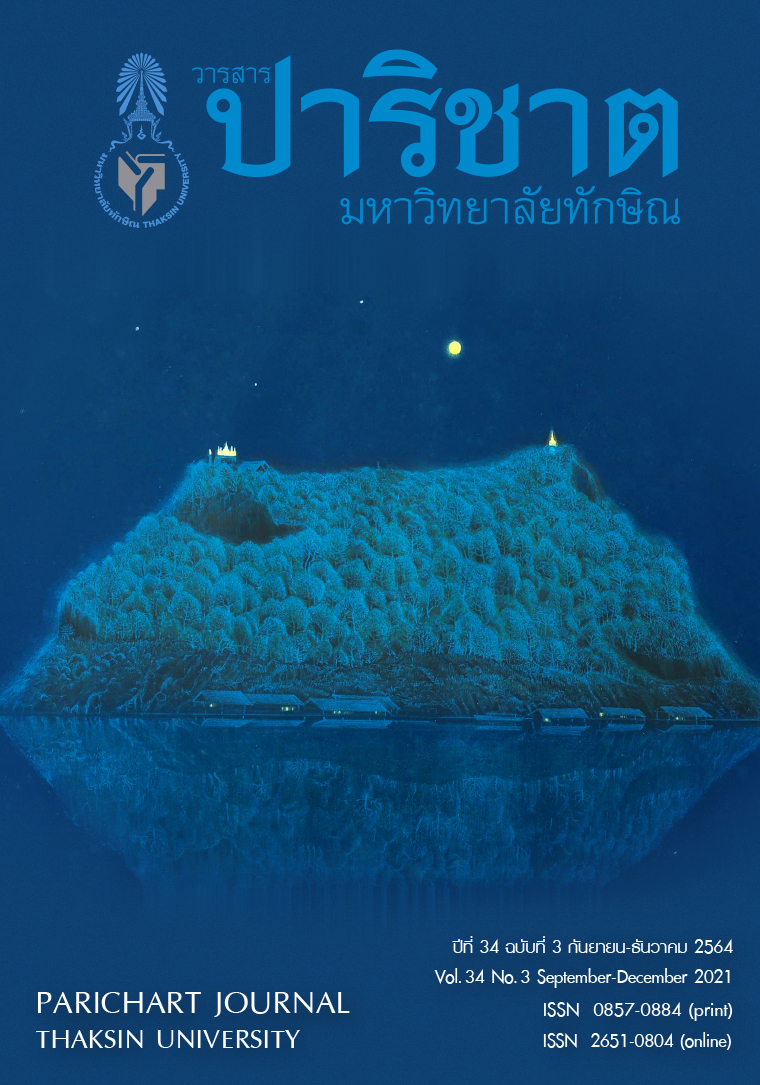A Corpus-based Study of English Adjective Formation Using the Suffix –ish
Main Article Content
Abstract
Affix productivity allows native as well as non-native speakers of English to create new words that sometimes have not yet coined in standard dictionaries. Among the top suffixes that contribute to productivity in English is -ish. This research article was aimed at exploring how adjectives were formed from the suffix -ish and what meaning they conveyed using data from the Corpus of Contemporary American English (COCA). It was found that there were five classes of words attached by this suffix: common noun, proper noun, adjective, numeral, and verb. Adjectives suffixed with -ish were further categorized into three groups according to their meanings: ‘somewhat’, ‘have a quality of’, and ‘approximately’. Pedagogical implications are also provided for teachers who wish to incorporate the suffix -ish into their lessons.
Article Details
References
Nishimoto, E. (2004). Defining new words in corpus data: productivity of English suffixes in the British National Corpus. Proceedings of the Annual Meeting of the Cognitive Science Society, 26.
Davies, M. (2020). Corpus of Contemporary American English. Retrieved February 2, 2020. http://corpus.byu.edu/coca/.
Davies, M. (2010). The Corpus of Contemporary American English as the first reliable monitor corpus of English. Literary and Linguistic Computing, 25(4), 447-464.
Kim, C. (2013). Vocabulary acquisition with affixation: Learning English words based on prefixes and suffixes. Second Language Studies, 31(2), 43-80.
Bauer, L. (2015). The Oxford reference guide to English morphology. Oxford: Oxford University Press.
Laws, J., & Ryder, C. (2014). Getting the measure of derivational morphology in adult speech: A corpus analysis using MorphoQuantics. Language Studies Working Papers, 6, 3-17.
Plag, I. (2003). Word-formation in English. Cambridge: Cambridge University Press.
Quirk, R., Greenbaum, S., Leech, G., & Svartvik, J. (1985). A Comprehensive Grammar of the English Language. London and New York: Longman.
Oxford University Press. (n.d.). -ish, suffix1. Online Oxford English Dictionary. Retrieved February 2, 2020 http://oed.com/view/Entry/99965?rskey=sqK1R7&result=7&is-Advanced=false#eid99551.
Random House Webster’s Unabridged Dictionary. (n.d.). -ish. In Dictionary.com. Retrieved February 2, 2020. https://www.dictionary.com.
Oxford University Press. (n.d.) -ish. In Lexico. Retrieved February 2, 2020. https://www.lexico.com.
Macmillan Education. (n.d.). -ish. In Macmillan Dictionary. Retrieved February 2, 2020. https://www.macmillandictionary.com.
HarperCollins. (n.d.). -ish. In Collins English Dictionary. Retrieved February 2, 2020. https://www.collinsdictionary.com/dictionary/english.
Oxford University Press. (n.d.) lavish. In Online Oxford English Dictionary. Retrieved February 2, 2020. https://oxfordlearnersdictionaries.com.
Plag, I. (2006). Productivity. In B. Aarts & A. McMahon (Eds.), The handbook of English linguistics (pp. 537-556). Blackwell Publishing.
Asplin, W. (Interviewee). Namtapi, I. (Interviewer), Address: A101 Padelford Hall, Department of English, University of Washington, Seattle, WA, 354330. February 24, 2020. (In English)


